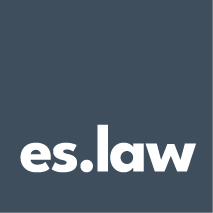The criminal offense of fraud (Sec 146 StGB)
Any person who, by deceiving another person about material facts causes the other persons to do, tolerate, or omit to do an act which causes a financial or other material loss to the other person or to a third person and who has the intention to gain an unlawful benefit for himself or a third person is liable to prosecution for fraud under Sec 146 StGB.
Fraud is therefore defined as an act in which the perpetrator creates an error by misrepresenting facts that results in the disposition of assets. Deception occurs when the perpetrator states false facts in order to mislead the deceived party. A deception can take place both by active action and by omission and can concern both external and internal facts. External facts are objectifiable factual or legal circumstances. Internal facts, on the other hand, relate to psychological or internal circumstances. For example, when applying for a loan, the (objective) ability to pay is an external fact, while the willingness to repay is an internal fact. It is possible to misrepresent both of such facts.
The deception must result in an error on the part of the deceived party. This error must lead to a disposition of property, i.e. an act, acquiescence or omission with which one’s own or another person’s property is disposed of.
Furthermore, the property misconduct must result in financial loss. In summary, this is the case if the financial situation after the act is less favourable than before and can result primarily from a reduction in assets or an increase in liabilities. It is essential that there is an effective loss of assets. In commercial criminal law, the concept of economic assets applies, which includes rights in rem (i.e. property, liens) as well as mandatory rights (e.g. actionable claims, intellectual property rights) and expectant rights (e.g. retention of title) as well as economically relevant personal services such as activities from employment and work contracts.
In order to constitute fraud, the perpetrator must also act with the extended intention of unlawfully enriching themselves or another person through the act of fraud.
Aggravated fraud (Sec 147 StGB) and Commercial fraud (Sec 148 StGB)
Aggravated fraud as an offense qualification according to Sec 147 StGB is commited if additional circumstances are fulfilled that increase the severity of the fraudulent act. Accordingly, any person who commits a fraud by using a false or forged legal document, a false, forged or misapplied non-cash means of payment, spied data of a non-cash means of payment, false or forged data, another such means of evidence or an incorrect measuring device or falsely impersonates a government official, is liable to prosecution for aggravated fraud pursuant to Sec 147 para 1 StGB. A further case of aggravated fraud is commited pursuant to Sec 147 para 2 StGB if the fraudulent loss exceeds the amount of EUR 5,000. If the loss exceeds the amount of EUR 300,000, the offense qualifies as aggravated fraud which is punished even more severely in accordance with Sec 147 para 3 StGB.
Commercial fraud according to Sec 148 StGB is committed if the perpetrator commits a fraud according to Sec 70 StGB with the intention of obtaining a not insignificant continuous income over a longer period of time through repeated commission. Such income is deemed to exist if, based on an annual average, it exceeds the amount of EUR 400 per month.
Examples of fraud in the business environment
In the economic context, fraudulent acts can occur in a wide variety of constellations. The following examples may constitute the offense of fraud:
- Incorrect invoices, such as the charging of excessive fees or services not rendered, may constitute fraudulent misrepresentation and, in the event of causing a financial loss thereby, can be punished as fraud.
- A managing director manipulates the company’s balance sheets in order to present the company as more financially liquid and thereby obtain loans from a bank. If loans are granted on the basis of untruthful information, the criminal offense of (serious) fraud may be committed if the perpetrator causes a financial loss to the bank.
- A farmer who falsely advertises and sells his vegetables as organic products may also be liable to prosecution for fraud according to the case law of the Austrian Supreme Court (OGH 14 Os 11/02).
Possible penalties and threat of disqualificatoin of managers
The basic penalty for fraud under Sec 146 StGB is imprisonment for up to six months or a fine not exceeding 360 daily rates.
However, if aggravated fraud in accordance with Sec 147 StGB or commercial fraud in accordance with Sec 148 StGB is committed, there are more serious penalties: any person who commits aggravated fraud pursuant to Sec 147 para 1 and para 2 StGB is liable to imprisonment for up to three years. If the loss caused by the fraud exceeds EUR 300,000, the penalty is imprisonment for between one and ten years.
In addition to the threat of a court penalty, managing directors of limited liability companies (GmbHs) and members of the management boards of public limited companies (Aktiengesellschaften) also face additional legal consequences. In the event of a final conviction of more than six months’ imprisonment for an economic offense such as fraud, a managing director or a member of the Management Board may no longer work in this function in accordance with Sec 15 para 1a of the Austrian Limited Liability Company Act (GmbHG) or Sec 85 para 2a of the Austrian Stock Corporation Act (AktG). In addition, there is a risk of claims for damages under civil law.
Compliance as the basis for fraud prevention
To prevent potential cases of fraud, companies should implement appropriate compliance measures. These include the following aspects, among others:
- It is often not easy for laypersons to draw the line between criminally relevant deception and (still) permissible product advertising, as the above example of false organic advertising in particular shows. If necessary, legal advice should be sought in order to avoid criminal law risks.
- Fraud can also be committed by an employee against the employer or by a business partner against an employee of the company. A well-functioning whistleblowing system allows employees to report legal violations confidentially, so that fraud can be detected and combated early and confidentially.
- In addition, regular training courses and workshops for employees and managers should be offered to highlight the risks and potential consequences of fraudulent behavior and to raise awareness among the workforce.
- Due to the increasing professionalism of perpetrator groups, employees should be regularly prepared for current risks. In recent years, for example, cases of so-called CEO fraud or other acts of fraud using social engineering have been on the rise. Despite all the technical achievements and the ongoing development of artificial intelligence (AI), the greatest source of risk is still human error, so appropriate training to prevent and avoid manipulation of the workforce is essential.
Criminal defense by a lawyer in the event of an allegation of fraud
In the event of a criminal allegation of fraud is made, it is advisable for the accused and the associations involved to consult a specialized criminal defense lawyer at an early stage. The lawyer will first analyse the specific case and then discuss the factual and legal situation with the client in confidence.
In addition, a lawyer specializing in white-collar criminal law will review the files as part of the criminal defense and develop a tailor-made defense strategy. This ensures that the accused can make an appropriate statement on the specific allegation of fraud, exercise his rights effectively and defend himself in the best possible way.
Companies as victims of fraud: rights and options for action
More and more companies are falling victims to fraud. Particularly in the area of cybercrime and IT criminal law, the perpetrators are becoming increasingly professional, which has been further exacerbated by the use of artificial intelligence in recent years. In addition to – often considerable – financial losses and the need to continuously adapt security measures, companies are often confronted with complex legal issues in the event of fraud and must also expect a loss of trust from their customers.
In the event of fraud, companies have the opportunity to report the facts of the case and assert their civil law claims in the course of private participation. Private parties can, for example, actively participate in the clarification of the incident by submitting documents and filing motions for evidence in order to help establish the truth and shape the outcome of the proceedings.
In cases of fraud in particular, the facts are often confusing and initially unclear, which is why it is advisable to consult a lawyer at an early stage to help carry out an internal investigation, to legally process the situation and to ensure greater clarity with regard to the steps to be taken. In addition, companies should work out how a case of fraud occurred and what preventive measures need to be taken in the course of compliance to avoid similar scenarios in the future.




